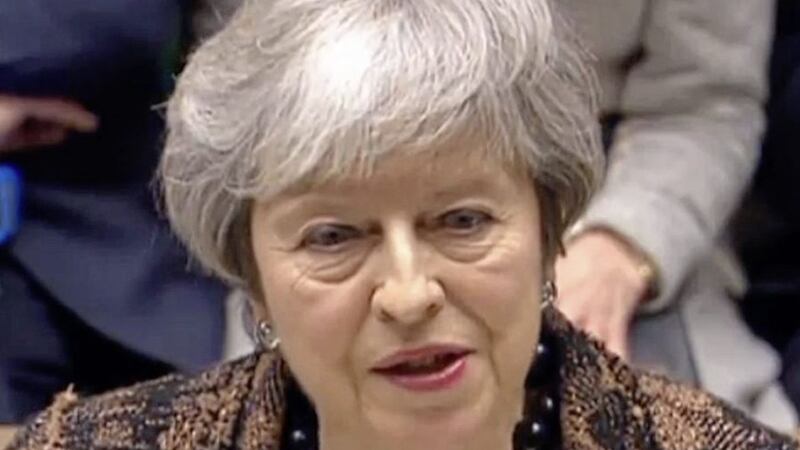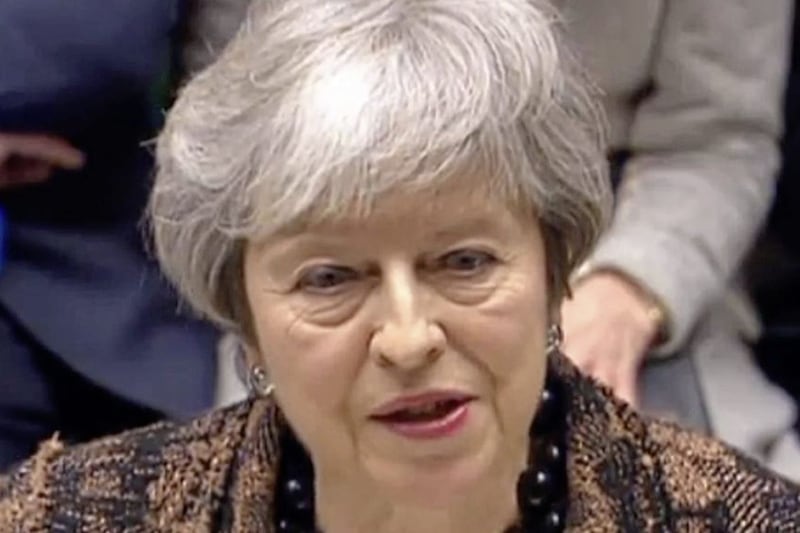AFTER Theresa May delivered her so-called Plan B at Westminster, it was hard to escape the sense that MPs and the public were being hoodwinked.
She reached out to the DUP, while giving a commitment to be more inclusive and to take another look at the backstop. But it would be pushing things somewhat to even characterise the Tory leader's plan as a 'tweaked' version of what MPs overwhelmingly rejected last week.
It was effectively the same thing, repackaged with a more conciliatory tone and presented with the same unabashed determination that over recent weeks has seen Mrs May prevail against the odds.
She appeared oblivious to the scale of last week's defeat, her demeanour suggesting the withdrawal agreement had lost by a handful of votes rather than 230.
Read More:
- Theresa May's Brexit deadlock plans 'wasted opportunity' say Stormont pro-Remain parties
- Theresa May to hold further talks with MPs on backstop
Labour leader Jeremy Corbyn was dismissive of the revised plan but the DUP responded in kind, suggesting they will give the prime minister a sympathetic hearing.
The key concerns among the DUP, its Brexiteer allies, and others less committed to a clean break with Brussels, are the permanence of the EU's insurance policy for keeping the border open and its potential to isolate the the north from Britain if the backstop is implemented in the event of no other agreement.
There is a growing sense at Westminster that if the DUP and its allies push Mrs May too far they will derail Brexit entirely, either through the extension of Article 50 or with a second referendum.
But while a week in politics is said to be a long time, nothing about the necessity and nature of the backstop has changed since last week's defeat for the British government.
Read More:
- Jacob Rees-Mogg presses ahead with appearance at DUP fundraiser despite criticism from NI Tories
- MP urges SNP leaders to make case for a second vote on Scottish independence
- Stephen Farry: No deal Brexit would be a disaster for Northern Ireland
Ahead of Mrs May's statement, there were various stories aired and printed which suggested new avenues were being explored to break the deadlock – bilateral negotiations between the Dublin and London; amendments to the Good Friday Agreement; and a suggestion from Polish foreign minister Jacek Czaputowicz that the backstop could apply temporarily, lasting for five years.
The reports created a distraction and plenty of outcry but none will grow legs. The key protagonists representing Irish and EU interests were quick to dismiss any speculation that the agreement will be watered down in any form.
While Mrs May insists she is not running down the clock ahead of March 29, time nonetheless moves inexorably onwards and her options decrease.
It would now appear the time for cosmetic changes is over and that the British government's Brexit strategy requires a complete overhaul.







